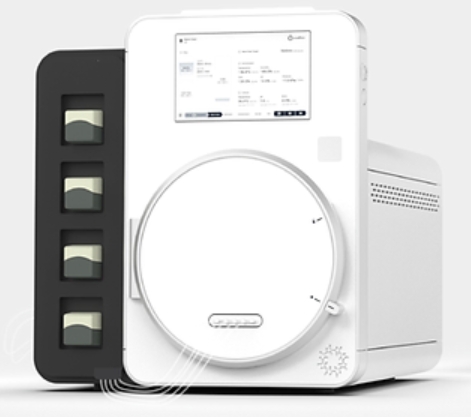
Can you share more about Harrison.ai’s mission and how your AI-powered medical imaging and diagnostic solutions are transforming on a global scale?
We are on a mission to urgently scale healthcare capacity through AI-powered medical imaging diagnostic support and workflow solutions. Our radiology (Annalise.ai) and pathology (Franklin.ai) solutions help clinicians deliver faster, more accurate diagnoses, aiding in the early detection of cancer and other medical conditions.
Harrison.ai has expanded its reach across multiple regions, including APAC, EMEA, the UK and the US. What challenges or opportunities have you faced as you scale your solutions internationally?
We have seen that the capacity issue is a universal problem—be it in Australia, the US, or South East Asia. We have also seen a growing appetite to adopt regulatory-cleared AI diagnostic support solutions.
The human aspect of technology adoption is crucial. Effective change management is essential to guide clinicians through new ways of working. Additionally, AI must be highly explainable to ensure trust and usability. When training AI on large datasets, we conduct extensive clinical validation to confirm safety and meet regulatory requirements. This process is necessary for the technology to gain approval for sale in specific markets and be used in clinical settings.
You’ve raised funding recently — what are the primary areas you plan to invest in a result of this funding? How will it accelerate Harrison.ai’s growth?
We are grateful to have recently closed our $112 million Series C round. This funding will accelerate our product development in radiology and pathology, expand our clinical partnerships — in Australia, particularly with the public health system — and scale our global reach in key markets, including the US, as well as our continued growth in APAC, the UK and EMEA.
AI in healthcare is evolving rapidly. What are the most significant industry trends you’re seeing right now in medical imaging and diagnostics, and how is Harrison.ai positioning to stay ahead of these trends?
As a clinician-focused company, we are deeply invested in staying at the forefront of innovations that positively impact our capacity and improve our way of working. Our team is continuously researching and applying the latest advancements to develop medical-grade AI-powered solutions tailored for radiology and pathology—helping to drive more accurate, efficient and scalable diagnostics.
How do you ensure that your AI-driven solutions are effectively integrated into existing healthcare systems? What feedback have you received from clinicians for your solutions?
We are focused on delivering clinically validated, high-impact AI solutions that improve patient outcomes at scale. Our AI solutions are trusted, effective and seamlessly integrated into real-world diagnostic support workflows that are already in use by clinicians - they are designed by clinicians for clinicians. Our deep partnerships with leading healthcare providers, rigorous research and commitment to regulatory excellence set us apart.
What are the key hurdles to widespread adoption of AI in healthcare, and how is Harrison.ai working to overcome these barriers in terms of trust, compliance and clinical outcomes?
Harmonising regulatory frameworks is one of the key hurdles to widespread AI adoption in healthcare. At Harrison.ai, we are focused on ensuring our AI models meet the highest standards of trust, compliance and clinical efficacy across global markets. We work closely with regulators to navigate these complexities and advocate for frameworks that support the safe and efficient deployment of AI in healthcare.
Looking ahead, a faster regulatory response to dynamic improvements in AI technology will be essential to unlocking the full potential of AI-driven clinical improvements.
How does Harrison.ai ensure the security and privacy of patient data, especially considering the sensitive nature of medical imaging and diagnostic information? What measures are in place to comply with global data protection regulations like GDPR and HIPAA?
We take patient data privacy and security extremely seriously, and we work closely with leading research institutions, regulators, and ethics bodies to ensure our AI solutions meet the highest standards for clinical use. Annalise.ai does not collect patient images or patient data, in fact, the data is encrypted and pseudo-anonymised.
With the rapid development of AI in healthcare, how do you foresee the role of AI in diagnostics evolving over the next 5 to 10 years? What advancements do you expect to see in both technology and clinical practice?
Global healthcare is currently facing several challenges, such as increasing imaging volumes, a shortage of medical professionals, and a high burden on existing staff. This is bound to increase in the coming years.
Peer-reviewed clinical research in relation to using AI to review chest X-rays has demonstrated that, in most cases, the radiologist’s performance is improved with AI support. Clinicians need to adapt to this evolution, envisioning a future where AI tools become collaborators, not replacements. Radiology departments should prioritise AI integration as a matter of urgency to ensure the clinicians have the technology support they need, to address increasing workloads.
Going forward we see more adoption of comprehensive AI rather than narrow AI solutions– helping clinicians to diagnose many potential diseases or medical conditions with one AI tool. A tool’s comprehensiveness incorporates its breadth and depth of coverage, providing detailed insights into a range of modalities while reaching a broad sphere of patient demographics.
Any solution that looks for a comprehensive range of findings can more effectively triage and prioritise worklists, and help diagnose rare or unsuspected medical conditions.
As AI and automation continue to play an increasingly prominent role in healthcare, how do you address the concerns regarding the potential impact on jobs in the healthcare sector, particularly among radiologists and pathologists?
We believe that AI will transform—not replace—clinical roles in healthcare. While AI can automate certain tasks performed by radiologists and pathologists, we see it enhancing rather than eliminating these roles. AI will shift the focus of healthcare professionals toward higher-value tasks like clinical decision-making, patient care and complex case analysis. This evolution will ultimately improve efficiency and patient outcomes while ensuring that human expertise remains at the core of healthcare.
Ayesha Siddiqui




